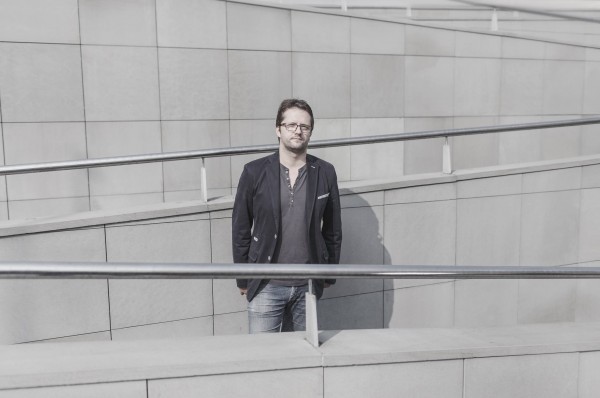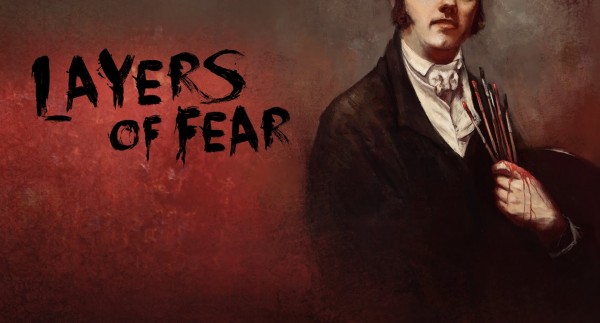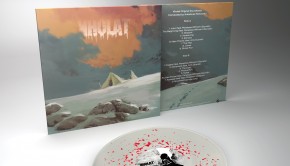Arkadiusz Reikowski Interview: The Sounds of Horror
Arkadiusz Reikowski has recently begun building a name for himself in the horror game genre, last year with his score to Kholat, and more recently with his music behind Layers of Fear, each taking a different musical approach despite being of the same genre. While Reikowski has composed for a variety of genres, his work on these latest two horror games have helped to shape his style and define his musical sound, which does not necessarily follow the typical approach for the genre.
In this email interview, Reikowski describes his musical thoughts on scoring for games of different genres. He also talks in more depth about his experience working with singer and voice actor Mary Elizabeth McGlynn, and his encounter with the Airis String Quartet, which has worked alongside composers like Gary Schymann for the Krakow Film Music Festival. Citing his musical influences, Reikowski describes the sound he aims to achieve when scoring a game, as well as musical aspirations.
Interview Credits
Interview Subject: Arkadiusz Reikowski
Interviewer: Emily McMillan
Editor: Emily McMillan
Coordination: Chris Greening, Mariusz Borkowski
Interview Content
Emily: You list one of your influences as Silent Hill, which becomes really evident upon listening to the melodies in your scores. Often game composers for horror games forgo the melodies altogether in favor of ambiance and dissonance – what made you decide to mix the two?

Arkadiusz Reikowski: And that is exactly the point. Nowadays melodies are often put to the side of the score, music is an underscore that is very film-like. I always thought that combining emotional, almost delicate music with the very dark ambiance in Silent Hill series turned out great. I like working with contrasts – piano, humming voice and dark, icy, slowed-down strings in Kholat or music box and dark ambiance in Layers Of Fear.
Emily: As you say, Kholat has this very cold strings-and-piano sound, while I’ve noticed Layers of Fear has a more music box-like approach. How do you decide which instrumental sounds to use when writing?
Arkadiusz Reikowski: Kholat was always about the cold, windy mountains, where some really dangerous presence lurks and tries to hunt us down. I thought that recording some higher strings parts and then additionally slowing them down a bit would work quite well and would add another layer to the icy atmosphere.
On the other hand, we are investigating a really tragic story of missing students, and finding their notes and journals. It was a good time to put some more emotions into the soundtrack. Especially at the beginning, when we arrive at the train station and the village is deserted, but there is some kind of sadness hanging in the air. The humming voice with the piano makes us more emotionally invested in the story.

Layers of Fear tells us about a great painter who has lost his mind. But he was a good father and a husband once. We explore his haunted house and eventually come to the child’s room, where some really creepy scenes happen. I thought about combining a music box (reflecting the child) with the piano (his wife was a pianist), which would work in a very nostalgic kind of way, expressing that inside this mad house there are some beautiful memories.
Emily: Did you end up reading much about the Dyatlov Pass incident before scoring for the game? I hadn’t heard the story before, but it was so chilling to read about! Great content for a horror game.
Arkadiusz Reikowski: Yes! Definitely. I like to be prepared before starting my work. As the game is heavily inspired by the Dyatlov Pass incident, I wanted to gather as much information as I could. It’s really chilling and we still have no idea what happened.
Emily: I particularly enjoyed the stringwork of the Airis Quartet in tracks like “Main Theme” and “Movement.” How did you come across them? Had you worked with them before?
Arkadiusz Reikowski: I knew Natalia, who is the alto player in Airis Quartet, but never had a chance to work with them before. Kholat seemed to be the perfect opportunity and definitely not the last. The girls are amazing. They beautifully performed the Bioshock Infinite suite at the Krakow Film Music Festival, which was conducted by Garry Schyman.
Emily: I also loved that song at the end of Kholat so much, “Farewell” was such a fantastic surprise, and Mary Elizabeth McGlynn has such gorgeous vocals! What made you decide to end with a song, and how did you come up with the lyrics for “Farewell”?
Arkadiusz Reikowski: Thank you! I really appreciate it. Well, we started with the lyrics. I asked the main writer of Kholat, Łukasz to try to create the lyrics to the melody that I wrote. They fit perfectly and Mary loved the track, so we recorded some vocals. It was an honor to be working with her, I’m a big fan. We all thought that ending with a song would add another layer to the story. Something to think about when the credits roll.
Emily: For future games, do you want to explore more music for the horror genre, or are you interested in trying out other styles, as well? Is there a game style or musical genre you would find to be particularly fun or challenging?
Arkadiusz Reikowski: I have always been drawn to dark, haunting music, so exploring more horror is definitely something that I’ll always want. Also, I love story driven games! The Walking Dead, Wolf Among Us, the amazing Everybody’s Gone To The Rapture by The Chinese Room (with a hauntingly beautiful and unique score by Jessica Curry). A game similar to Journey with the fantastic music by Austin Wintory would be a great challenge.
Also, I’m a big fan of Deus Ex and Mass Effect series. It would be great to be composing music for those kinds of titles. I absolutely love the futuristic sci-fi genre. And I definitely wouldn’t mind scoring the next Resident Evil or a title from the Souls series (Dark Souls, Bloodborne), which I’m completely obsessed with.
Emily: Thank you so much for your time, and your beautiful music!
Arkadiusz Reikowski: Thank you Emily, it’s an honor talking with you!
Posted on January 23, 2016 by Emily McMillan. Last modified on January 24, 2016.
















Very nice interview and accompanying review! A nice surprise.